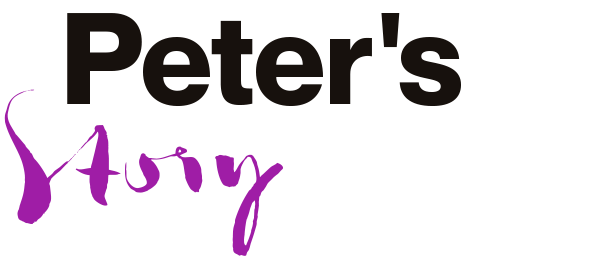Claudia Kouwenberg died from an aggressive form of cancer known as cancer of unknown primary (CUP). As CUP Awareness Week approaches, her husband Peter is telling their story in a bid to educate the public – as well as medical professionals – about why access to molecular diagnostics would have given them the answers they deserved.
In March 2020, the world was coming to terms with the threat posed by the coronavirus pandemic, and in the Netherlands, Claudia Kouwenberg was dealing with a mild but troublesome case of eczema. Within weeks the world would be in lockdown and Claudia would be in a wheelchair, no longer able to walk unassisted. Within 6 months, she died.
The cause of Claudia’s death was cancer of unknown primary (CUP), an advanced/metastatic form of cancer which affects at least two areas of the body, but this was not realized for many months. Although more than 1,500 people in the Netherlands will be diagnosed with this form of cancer in a given year, a lack of awareness and access to cutting-edge molecular diagnostics means that diagnosis is often delayed or even missed. World CUP Awareness Week takes place every September in a bid to increase awareness of the cancer as well as imbue the public and medical community with a sense of urgency when it comes to its diagnosis.
Peter Kouwenberg is 55 and has decided to tell the story of Claudia’s final months. The eczema, in hindsight, was an initial sign, but the following month Claudia began to have trouble walking. An incorrect diagnosis of bursitis in the hip was offered, and physio and antibiotics were given, to no avail. Within a matter of weeks, her mobility was severely impaired and she began using a wheelchair. Peter’s frustration even at this early stage is palpable.
“We had already urged the GP several times for a referral to the hospital for further examinations,” Peter explains. “We also insisted on a blood test… Again and again, there was no response to our requests. We were worried because she wasn’t recovering and we wondered what was going on.”
Their GP’s uncertainty compounded the delays caused by the ongoing pandemic. When Claudia was no longer able to sleep because of her pain, she finally received a neurology referral, but during the appointment, her hip suddenly broke when she was trying to get up from the examination table.
“An upper leg does not just break, we soon took cancer into account,” Peter admits. “After a few nerve-wracking days, we were told that it was indeed cancer, but it was not clear what the primary location was and the tissue taken was no longer usable for research because it had already died.”
A host of examinations followed, including CT scans, PET scans, MRI scans, mammography, ultrasound, lung X-rays and blood tests. Once again, they were told it was cancer but the primary source was not known. As the investigations continued, Peter said he was almost overcome with feelings of despair. “You are powerless. You stand there but can’t do anything. Really powerless.”
This is unfortunately a typical journey for patients with CUP. While the eventual outcome may not have been different, Claudia’s last months were spent in grave pain as her condition deteriorated rapidly. She had swallowing problems, a rapidly deteriorating appetite which made supplementation with a protein drink and nutridrink necessary, rapidly deteriorated vision, presumably due to medication. Bladder infections were also common. By August 2020, they had been told that Claudia was too weak for an experimental clinical trial, and standard treatment was not possible as it was unclear what to focus on as the primary tumor was still unknown. She passed away weeks later.
For CUP patients like Claudia, battling to receive a diagnosis wastes precious time.
The advent of whole genome sequencing (WGS) of tumors is promising and could help transform their care, as instead of treating cancer based on where it originated, doctors would instead devise a treatment regime based on the genetic characteristics of the tumor. This personalized approach is being rolled out for many cancer types, but access is patchy – or even non-existent. It is also critical that it is carried out early in the diagnostic process so as to improve outcomes.
Peter admits that while this may not have made a difference in his wife’s case, the answers it would have provided would have been invaluable.
“It takes six weeks until the results are available, so we probably would have had a diagnosis only after death. This could have eased the frustration of not knowing what it is, even though there was probably no treatment for Claudia as she was already too weak.”
Since then, the Dutch Parliament unanimously added extensive DNA-testing to the basic package of care that must be covered by health insurers and WGS has been reimbursed for CUP patients from April 2021. Yet it is not always a given that patients will receive prompt access to this testing, and in many countries around the world it is not offered at all.
SJK Foundation (Ireland) and Missie Tumor Onbekend (the Netherlands), are two national patient organizations dedicated to improving quality of care & life and providing information and support for patients. World CUP Awareness Week runs from 19-23 September 2022. Peter is a volunteer at Missie Tumor Onbekend.
This story is also part of the From testing to Targeted Treatments Precision Medicine Patient Stories Library, a repository of stories that aim to visualize each patient’s pathway according to a common framework, and highlight learnings and best practices. Discover the visual version of this story here.


